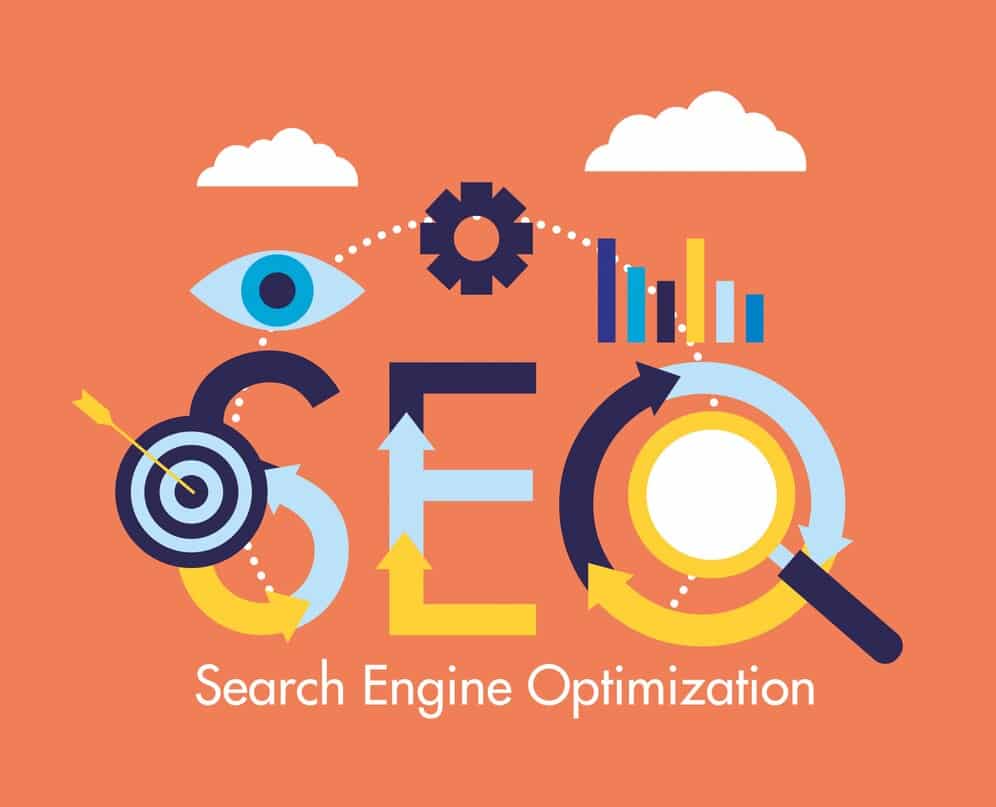Are you looking to start a blog but unsure of which platform to choose? With a variety of blogging platforms available, each designed for different needs and preferences, selecting the right one can feel overwhelming. In this article, we will explore the nine best blogging platforms that cater to various requirements, helping you find the perfect fit for your blogging journey.
Key Takeaways
- WordPress is the most popular blogging platform, offering extensive customization and flexibility.
- Shopify is great for ecommerce bloggers, combining online store features with blogging tools.
- Medium provides a built-in audience, making it easy to reach readers, but lacks SEO benefits.
- Wix is user-friendly with drag-and-drop functionality, suitable for beginners looking to create visually appealing blogs.
- LinkedIn allows professionals to share their insights and connect with a large audience, though it offers limited design options.
1. WordPress
WordPress is the most popular blogging platform in the world, used by over 43% of all websites. It offers two main options: WordPress.org and WordPress.com.
WordPress.org
This is a self-hosted platform that gives you full control over your blog. You can customize it as you like, but you need to manage your own hosting and security. This option is great for those who want flexibility and advanced features.
WordPress.com
This version is easier for beginners because it takes care of hosting and maintenance. You can start for free, but there are paid options for extra features like a custom domain name and more storage.
Pros and Cons
Here’s a quick look at the advantages and disadvantages of both options:
| Feature | WordPress.org | WordPress.com |
|---|---|---|
| Control | Full control and customization | Limited control |
| Setup | Requires technical knowledge | Easy setup for beginners |
| Cost | Hosting and domain fees apply | Free with ads, paid plans available |
Key Points
- WordPress.org is ideal for advanced users who want to create a unique blog.
- WordPress.com is perfect for those who prefer a simple setup without technical hassles.
- Both options have their own pros and cons, so choose based on your needs.
WordPress is not just for blogging; you can also create business websites and online stores with it.
2. Shopify
Shopify is a powerful platform that helps you create an online store and blog all in one place. It’s especially great for people who want to sell products online. With Shopify, you can easily set up your store and start blogging to connect with your customers.
Key Features
- User-Friendly Design: Shopify has a simple drag-and-drop interface that makes it easy to build your site.
- Built-In Blogging Tools: You can write and publish blog posts directly on your store.
- Ecommerce Focused: It’s designed specifically for online selling, which means it has features that help you manage your products and sales.
Pros and Cons
| Pros | Cons |
|---|---|
| Easy to use | No free plan available |
| Many templates to choose from | Monthly fees start at $39 |
| Good for SEO | Limited blogging features |
Pricing
- Starts at $39/month
- Includes hosting and support
Shopify is a great choice if you want to combine blogging with selling products. It helps you reach more customers and grow your business.
3. Medium
Medium is a popular online platform where writers, bloggers, and experts can share their thoughts and stories. It’s designed to be simple and focuses on the content rather than fancy designs.
Pros
- Easy to use with no coding skills needed.
- Connects you to a large community of readers and writers.
- You can focus on writing without worrying about website design.
- Offers a way to earn money through the Medium Partner Program based on how much people engage with your articles.
Cons
- Limited options for customizing your blog’s look.
- You can’t use your own domain name; it will look like
https://medium.com/@yourname. - If you lose your Medium account, you also lose your followers.
- You can’t run your own ads to make money from your blog.
Pricing
Medium is free to use, but it has limited ways to make money from your blog compared to other platforms.
Medium is a great choice if you want to focus on writing and connecting with others. However, remember that the platform controls your content and audience.
4. Wix
Wix is a well-known website builder that makes it easy for anyone to create a website or blog without needing to know how to code. With over 110 million users worldwide, it’s a popular choice for beginners.
Pros
- User-friendly drag-and-drop interface.
- A wide selection of stylish templates to choose from.
- Quick setup with hosting and security included in the plans.
Cons
- The free version has limitations and displays Wix branding.
- Some templates cannot be changed once selected.
- Advanced blogging features are not as strong as other platforms.
Pricing
Wix offers a free plan that includes a Wix subdomain. If you want a custom domain, you can get one starting at $4.50 per month. Paid plans begin at $8.50 per month, which unlock more features and remove ads.
Wix is a great option for those who want to create a simple website or blog quickly, but it may not be the best choice for more complex blogging needs.
5. Squarespace
Squarespace is a user-friendly website builder that allows you to create stunning websites and personal blogs without needing to know how to code. It’s perfect for small business owners who want a simple way to establish an online presence. Founded in 2003, Squarespace now powers millions of websites worldwide.
Pros
- Easy to use, even for beginners.
- Offers beautiful, professionally designed templates.
- Includes a domain name with HTTPS/SSL.
- Provides options for eCommerce stores.
Cons
- Limited features compared to other platforms.
- Integrations are restricted to a few tools and services.
Pricing
Squarespace has different pricing plans:
| Plan Type | Monthly Price | Annual Price |
|---|---|---|
| Personal Website | $16 | $12 |
| Business Plan | $26 | $18 |
| Online Store | Starts at $26 | Varies |
Squarespace is a great choice for those who want a visually appealing website without the hassle of complex setups. However, its limited integrations might not meet the needs of more advanced users.
6. Blogger
Blogger is a free blogging platform owned by Google. It’s a great choice for beginners who want to start a blog without any technical skills. You can easily create a blog with just a Google account.
Pros
- Completely free to use.
- Simple to manage, even for those with no tech background.
- Backed by Google, ensuring a secure and reliable platform.
Cons
- Limited features and tools as your blog grows.
- Fewer design options and templates compared to other platforms.
- Updates and new features are not frequent, which can be a drawback.
- Google can suspend your blog or shut down Blogger at any time.
Pricing
Blogger is free with a subdomain like https://example.blogspot.com. If you want a custom domain, you’ll need to purchase it from a third-party provider.
Blogger is a good starting point for new bloggers, but many users switch to more flexible platforms like WordPress as their needs grow.
7. Tumblr

Tumblr is a unique microblogging platform that combines blogging with social networking. It’s perfect for those who enjoy sharing short posts and multimedia content like images, GIFs, and videos. This platform is especially popular among younger audiences for its creative and visual appeal.
Pros
- Free to use with a Tumblr subdomain (e.g., https://example.tumblr.com).
- Easy to set up and navigate, making it beginner-friendly.
- Supports various content types, including text, images, and videos.
- Strong community engagement through reblogging and liking posts.
Cons
- Limited customization options for design and layout.
- Not ideal for long-form content or professional blogging.
- Ownership of content can be unclear due to the reblogging feature.
Pricing
Tumblr is free to use, but you can purchase a custom domain name for a more personalized web address.
Tumblr is best suited for casual bloggers who prefer quick updates and a vibrant community atmosphere.
8. Ghost
Ghost is a minimalist blogging platform that focuses on making writing easy and straightforward. It’s designed for those who want a clean and simple space to create content. With its fast loading times and distraction-free interface, Ghost is perfect for bloggers who want to concentrate on their writing.
Pros
- Minimalist design that helps you focus on writing.
- Built-in SEO tools to help your blog get noticed.
- Uses a Markdown editor for quick and easy formatting.
- Offers open-source options for those who want to self-host.
Cons
- Limited customization options compared to other platforms.
- Fewer themes available for changing the look of your blog.
- The self-hosted version can be tricky to set up.
Pricing
Ghost offers two main options:
| Type | Price |
|---|---|
| Hosted | Starting at $9/month |
| Self-hosted | Custom domain (~$14.99/year) + hosting (~$7.99/month) |
Ghost is a great choice for bloggers who want a simple and effective way to share their thoughts without distractions.
9. LinkedIn

LinkedIn is a social media platform mainly for professionals, boasting over one billion active users. It allows users to write and share blog articles directly on the platform. Publishing on LinkedIn can help you gain followers and increase traffic to your profile.
Features
- Built-in audience of professionals
- Comment management tools
- Social sharing options
Pros
- No need for web development skills
- Access to a large professional network
- SEO tools are available
Cons
- Limited design options
- Minimal SEO benefits for external websites
Pricing
- Free to use
Blogging on LinkedIn is a great way to connect with professionals and showcase your expertise, but it may not drive traffic to your own website.
Frequently Asked Questions
What is the best blogging platform for beginners?
For beginners, platforms like WordPress, Medium, and Blogger are great choices. They are easy to use and don’t require any coding skills.
Can I customize my blog on these platforms?
Yes, most blogging platforms allow you to customize your blog’s appearance. You can change layouts, colors, and fonts to suit your style.
Do I need to pay for a blogging platform?
Some platforms offer free options, but they might have limitations. Paid plans usually provide more features and customization.
How important is SEO for my blog?
SEO, or search engine optimization, is very important. It helps your blog show up in search results, making it easier for people to find your content.
Can I make money from my blog?
Yes, many bloggers make money through ads, sponsored posts, and affiliate marketing. However, it takes time and effort to build an audience.
What should I look for in a blogging platform?
You should consider ease of use, customization options, SEO features, integrations with other tools, and cost when choosing a blogging platform.







Leave a Reply